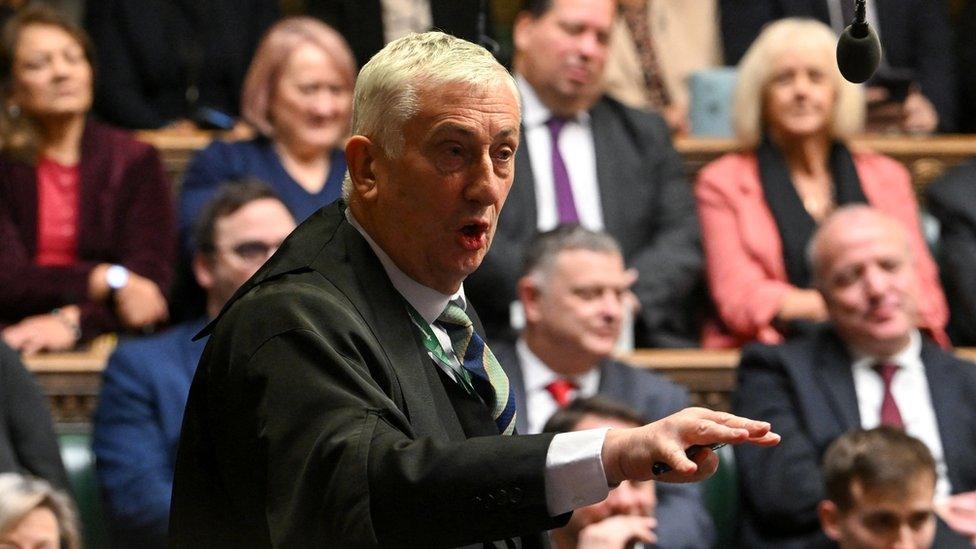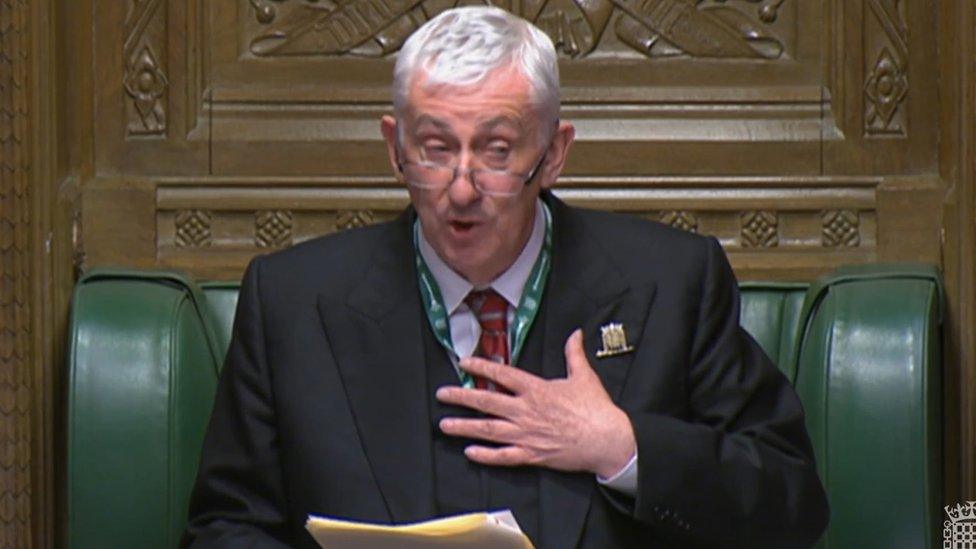Lindsay Hoyle rejects SNP request for emergency Gaza debate
- Published

Commons Speaker Sir Lindsay Hoyle has rejected the SNP's request for an emergency debate on Gaza.
Sir Lindsay said he understood the government was "ready to make a relevant statement" on Tuesday so there were other opportunities for MPs to discuss the issue.
It comes after last week's debate on SNP calls for an immediate ceasefire in the conflict ended in chaos.
The SNP said Westminster was "failing the people of Gaza by blocking a vote".
The party had requested a fresh debate on a motion which would mandate the government to take concrete steps to make a ceasefire happen, including using its position on the United Nations Security Council to vote for an immediate ceasefire and halting the sale of arms to Israel.
However, the Speaker said that under Commons rules an emergency debate had to be on an issue ministers had responsibility for, and there must be no other way MPs could discuss it.
Sir Lindsay told MPs the SNP's application for a debate did not meet either criteria.
"That decision, of course, does not mean that members cannot apply for a debate at a later stage when circumstances might have changed," he added.
In response, SNP Westminster leader Stephen Flynn said in a statement: "For months, the UK Parliament has blocked SNP calls for an immediate ceasefire - and now it's blocking a vote on the concrete actions the UK government must pursue to make an immediate ceasefire more likely."
He said the "inexplicable decision" would "further erode trust in the Speaker".
Sir Lindsay provoked anger from SNP and Conservative MPs when he broke with convention last week to allow a vote on a Labour amendment to the SNP's motion calling for an immediate ceasefire.
It meant the SNP's motion, which was originally meant to be the focus of the debate, was not voted on.
This led to calls from the SNP - and some Conservatives - for Sir Lindsay to resign.
Since then, the number of MPs declaring no confidence in him as Speaker has risen to 80, external.
Sir Lindsay, who has already apologised for his handling of the issue, had previously indicated he would allow a fresh debate under emergency rules.
Mr Flynn said: "The Speaker broke the rules last week - and this week he has broken his word.
"How can MPs have any trust in the Speaker when he makes a public commitment one minute, only to rip it up the next."
Last week, Sir Lindsay had argued that allowing a vote on Labour's amendment meant MPs could express their views on the "widest range of propositions", helping to protect them from threats to their safety amid heightened scrutiny over their stance on the conflict.
However, the decision meant Labour avoided a potentially damaging rebellion over whether it supported the SNP's ceasefire call, which went further by calling for an end to the "collective punishment of the Palestinian people".
This led to accusations, which have been denied by the party and Sir Lindsay, that Labour had put pressure on the Speaker over the decision.
- Published22 February 2024

